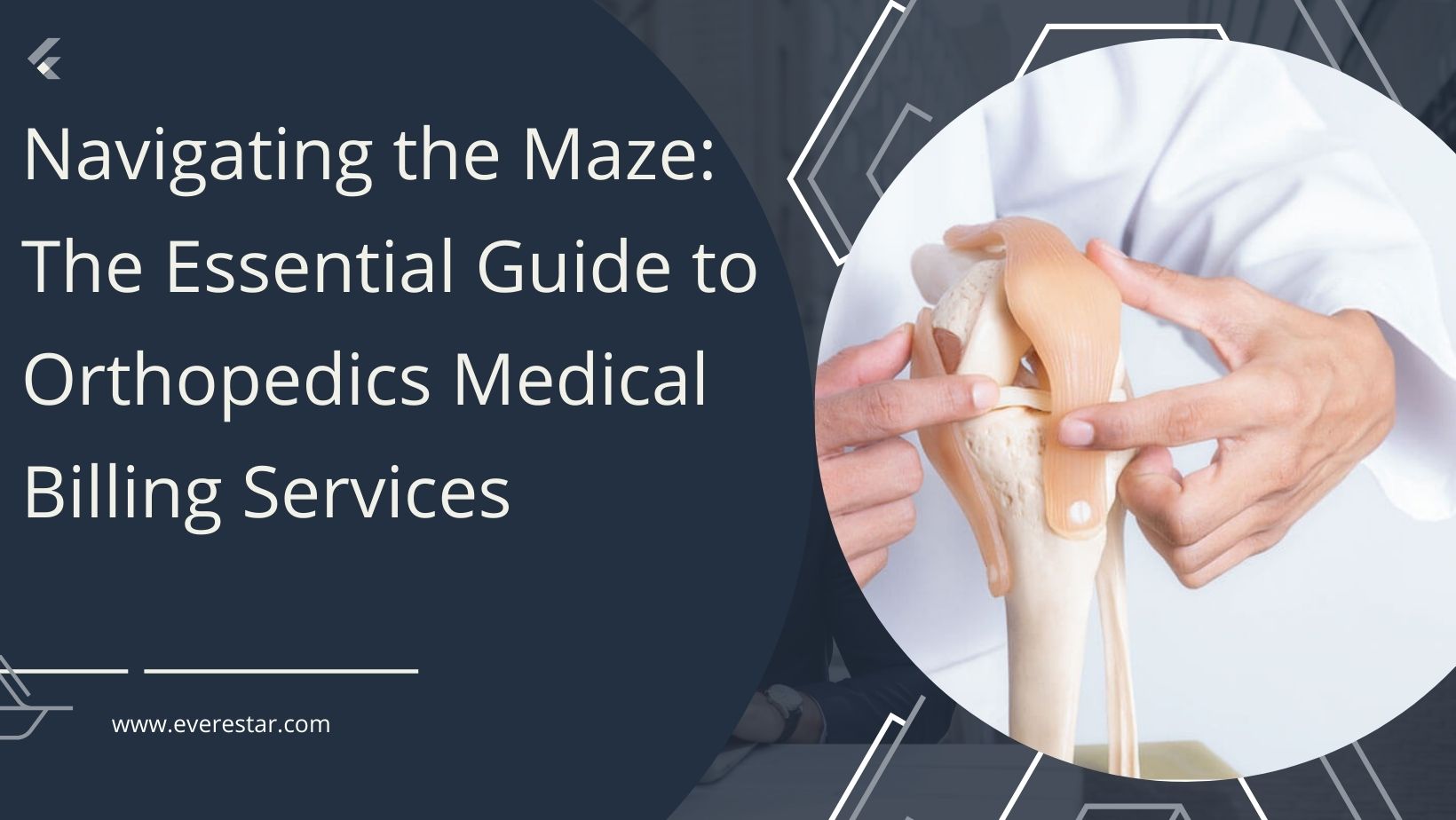In the intricate realm of healthcare, efficient medical billing services play a pivotal role in ensuring the financial health of orthopedic practices. Orthopedics, with its focus on musculoskeletal health, demands a specialized approach to billing to navigate the complexities of reimbursement processes. This blog post will explore the significance of orthopedics medical billing services, shedding light on key aspects that contribute to the success of orthopedic practices.
Coding Accuracy: The Backbone of Orthopedic Billing
Orthopedic procedures come with a unique set of codes that require precision and accuracy for optimal reimbursement. Medical billing services for orthopedics must excel in coding accuracy, ensuring that each procedure is properly documented and submitted to insurance providers. A thorough understanding of CPT, ICD-10, and HCPCS codes is essential to prevent claim denials and delays in payment.
Navigating Complexities: Orthopedic Procedures and Billing Challenges
Orthopedic practices often involve a variety of procedures, from joint replacements to fracture repairs. Effective medical billing services must be well-versed in the nuances of billing for different procedures, including pre-authorization processes, documentation requirements, and compliance with payer guidelines. Addressing these complexities ensures a smooth billing process and accelerates revenue cycles.
Compliance and Regulation: Staying on the Right Path
Orthopedics medical billing services need to stay abreast of the ever-evolving healthcare regulations. Compliance with HIPAA, Medicare, and other industry standards is crucial to avoid legal complications. A robust billing service ensures that orthopedic practices adhere to billing regulations, minimizing the risk of audits and penalties.
Patient Communication and Transparency
Clear communication with patients regarding billing processes is paramount. A transparent billing service keeps patients informed about their financial responsibilities, reducing confusion and frustration. Orthopedic practices that prioritize patient communication foster trust and satisfaction, contributing to a positive overall patient experience.
Technology Integration: Streamlining Orthopedic Billing Operations
Modern orthopedics medical billing services leverage advanced technologies to streamline billing operations. Electronic Health Record (EHR) integration, automated billing systems, and real-time claim tracking enhance efficiency, reduce errors, and accelerate reimbursement processes. Embracing technology ensures that orthopedic practices remain competitive and adaptable in the ever-evolving healthcare landscape.
Revenue Cycle Management: Maximizing Financial Performance
A comprehensive orthopedics medical billing service goes beyond the billing process itself. It encompasses effective revenue cycle management, from appointment scheduling to claim submission, payment posting, and denial management. Optimizing the entire revenue cycle ensures a steady cash flow and contributes to the financial sustainability of orthopedic practices.
Conclusion:
Orthopedics medical billing services are the unsung heroes behind the financial success of orthopedic practices. Navigating the intricate landscape of coding, compliance, and patient communication, these services are instrumental in maximizing revenue and ensuring the seamless operation of orthopedic healthcare providers. By embracing technology, staying compliant, and prioritizing patient communication, orthopedics medical billing services pave the way for a thriving future in the dynamic healthcare industry.


